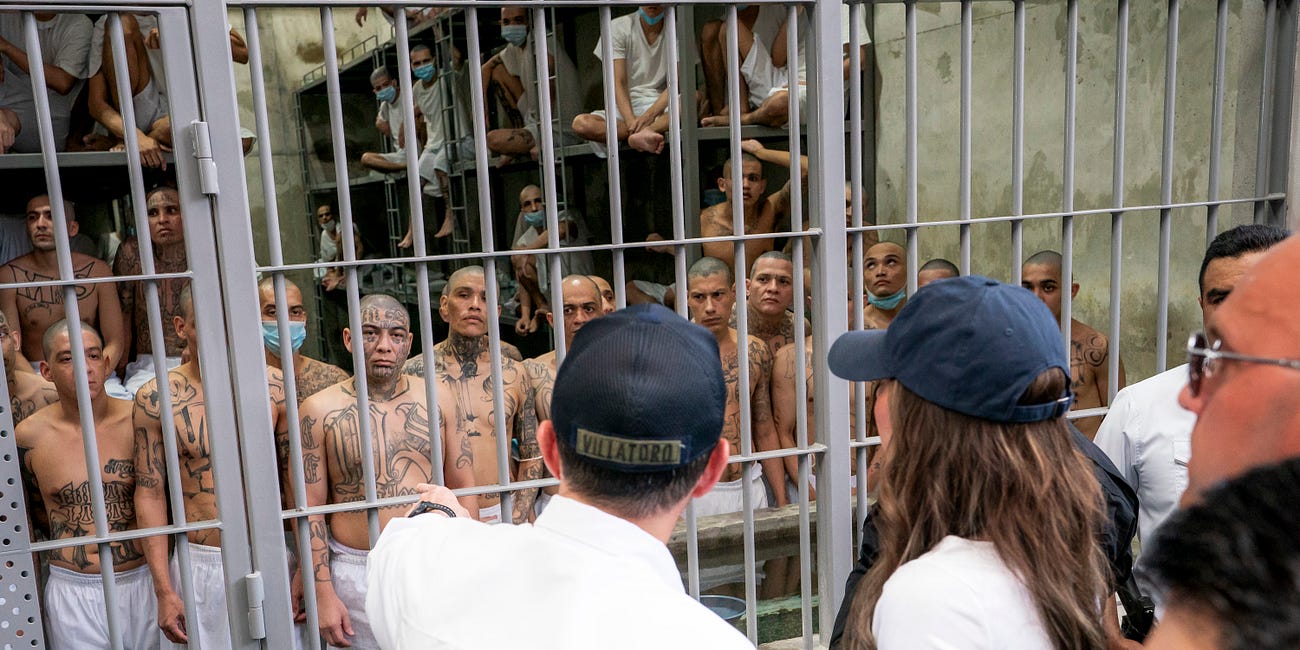ADDENDUM E: Suspension of Habeas Corpus Under Article I, Section 9 – Constitutional Tools for National Defense
Judges Expect Us to Try Enemy Soldiers Individually?
Part 1:
Invasion USA
Issue PresentedThanks for reading Autodidact Obsessions! Subscribe for free to receive new posts and support my work.
Part 2:
Exhibit A: Case Study – Strategic Exploitation of Judicial Ambiguity by Foreign Paramilitaries
Read Section 1, the Brief, here:
Part 3:
Part 4:
Part 5:
I. Introduction
This addendum examines the constitutional foundation and practical necessity of suspending habeas corpus in times of invasion, rebellion, or existential threat. Under current judicial doctrine, all unlawful entrants are entitled to individualized due process protections. Yet this procedural requirement was never intended to bind the Executive in wartime or in response to mass infiltration. The Suspension Clause is a built-in constitutional safeguard—not a loophole—designed to protect the Republic’s sovereignty when ordinary judicial processes become incompatible with survival.
---
II. Constitutional Text and Legal Doctrine
U.S. Constitution, Article I, Section 9, Clause 2:
> “The Privilege of the Writ of Habeas Corpus shall not be suspended, unless when in Cases of Rebellion or Invasion the public Safety may require it.”
This clause:
Acknowledges that judicial process may need to yield during times of emergency.
Provides the only textual basis for overriding due process norms codified in peacetime jurisprudence.
Is a structural feature of the Constitution, not an exception.
---
III. Historical and Judicial Interpretation
A. The Civil War and Lincoln's Suspension
In 1861, President Abraham Lincoln suspended habeas corpus in response to Confederate aggression and domestic rebellion—without initial congressional approval.
The constitutionality of this action was fiercely debated in Ex parte Merryman, 17 F. Cas. 144 (C.C.D. Md. 1861), but never definitively resolved by the Supreme Court.
B. Supreme Court Endorsement in The Prize Cases, 67 U.S. 635 (1863)
> “The President does not initiate war, but he is bound to resist force by force.”
The Court upheld Lincoln’s authority to act without waiting for legislative affirmation when faced with de facto war.
This logic extends naturally to modern asymmetric threats, such as coordinated paramilitary infiltration or foreign-operated police networks.
C. Ex parte Milligan, 71 U.S. 2 (1866)
Milligan held that military tribunals could not try civilians where civilian courts were open.
However, the Court acknowledged that habeas corpus could be suspended lawfully, under the Constitution, when invasion or rebellion endangered the civil courts themselves.
---
IV. Application to Modern Infiltration Scenarios
The Constitution does not limit the definition of "invasion" to uniformed soldiers crossing a border. Nor does it state that:
The invasion must be violent upon entry.
The enemy must declare themselves.
The suspension clause only applies to U.S. citizens.
Modern asymmetric warfare—involving covert operatives, foreign-backed criminal networks, or organized paramilitary cells—constitutes a form of “silent invasion.”
Examples:
PRC police stations operating illegally in U.S. cities (Addendum C).
Venezuelan gang-affiliated paramilitary units infiltrating border flows (Addendum A).
State-sponsored migration using non-uniformed personnel for subversion.
---
V. Legal Precedents Misapplied in Crisis
Several recent cases improperly presume that individual rights override structural survival:
Zadvydas v. Davis, 533 U.S. 678 (2001) – Limits on detention presume no national emergency.
Boumediene v. Bush, 553 U.S. 723 (2008) – Extended habeas corpus rights to foreign nationals held at Guantanamo; case distinguished from domestic invasion but now cited broadly.
> These decisions, while valid in controlled contexts, were never designed to govern mass infiltration by hostile forces under the guise of migration.
---
VI. Structural Consequences of Refusing Suspension
If habeas corpus cannot be suspended even in invasion, then no constitutional emergency power exists in practice.
Courts then become arbiters of national defense—without political accountability or the operational capacity to defend territory.
This violates Federalist 23 (Hamilton):
> “\[The powers of defense] ought to exist without limitation, because it is impossible to foresee or define the extent and variety of national exigencies.”
---
VII. Conclusion
The Suspension Clause is not rhetorical. It is a constitutional firewall against collapse. When courts enforce peacetime norms in wartime conditions—or refuse to acknowledge an ongoing infiltration as “invasion”—they nullify this emergency provision entirely. The result is a judicial override of constitutional design, subordinating national survival to procedural orthodoxy.
If enemies infiltrate the nation by exploiting these protections, and if the Executive is paralyzed from responding because habeas cannot be suspended, then sovereignty is dead in practice—even if preserved in theory.









